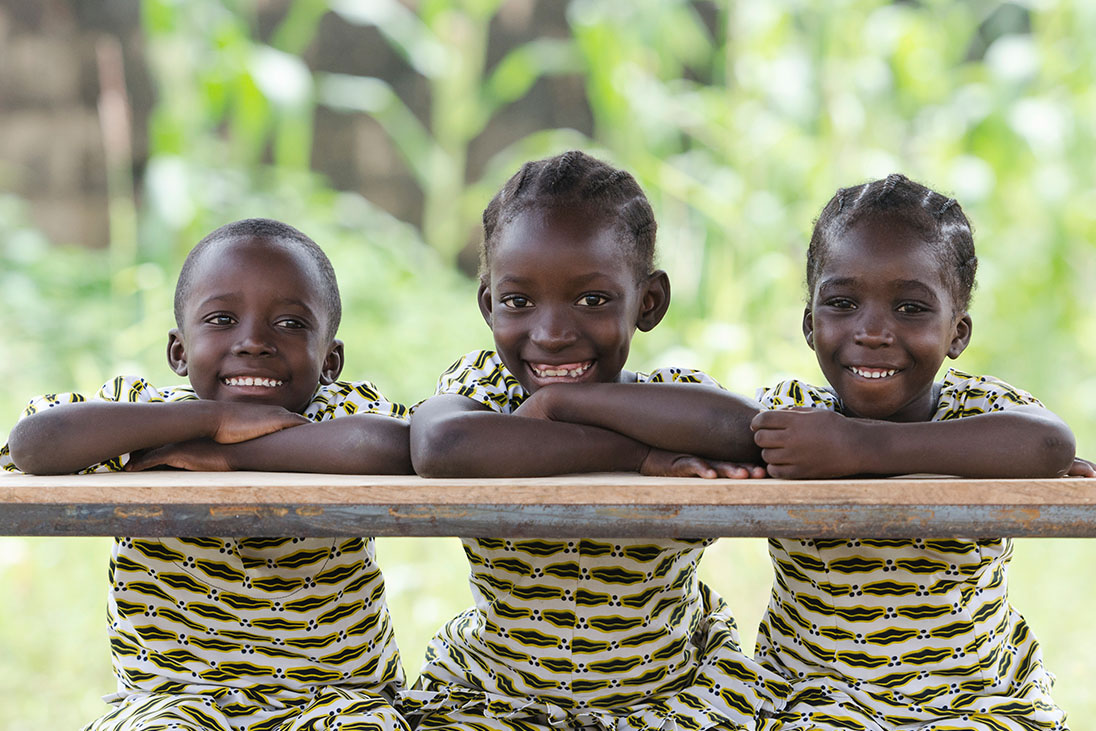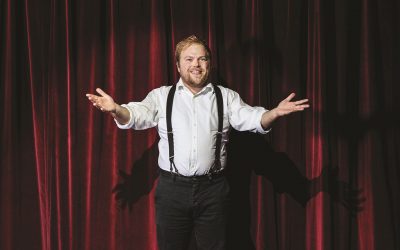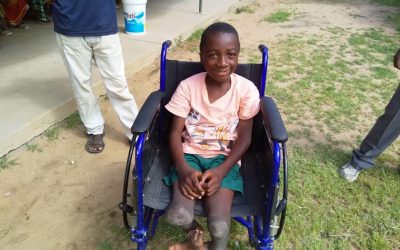Irish prisoners are being given a purpose in up-cycling bikes, while also providing transport for African children struggling to make their way to and from school.
The Rotary-led initiative, which is supported by the Irish Prison Service, local councils and the Irish Defence Forces, has operated since 2006 and has sent over 3,000 bikes to Africa since its inception.
The scheme is run within Loughan House Open Prison in County Cavan.
The centre is only one of two prisons of its kind in Ireland. It is a low-security facility which houses male offenders that are over the age of 18 and deemed to require lower levels of security.
Loughan focuses on aiding the rehabilitation of inmates through educational and training programmes. Prisoners are also given the opportunity to work in the polytunnels, where over 4,000 sunflowers are grown each year.
I think it’s great to work in conjunction with Rotary Ireland to bring and develop a project like this and help it grow.”
And there is also the option of working in the shed-like café alongside the polytunnels, which overlooks Lough MacNean.
Joe and Derek are two of three prisoners that spend their days working in the bike repair shop located within the grounds.
From Monday to Friday each week, the repairmen work on hundreds of broken-down bikes sent to them through collection points set up by Rotary Ireland.
Once the men have fixed enough bikes to fill a lorry, they are transferred to The Gambia in West Africa, where children living 5km or more away from their school are gifted a bike.
However, the schoolchildren are not the only ones benefiting from the scheme.
Both Joe and Derek say that working in the bike shop “keeps your mind going”, and makes the days go by quicker.
Joe says: “When you’re in a closed prison you have your regime, it’s a different experience. Being in a closed jail, you have six minutes to talk to your family on the phone. You get a visit once a week – if you’re lucky. Lucky lads get visits once a week. You’re in your cell – Jesus, how many hours a day?”
Joe continues: “To be down here, it’s a much easier way to do your sentence. I did break the law. I deserved a prison sentence. I went to prison.
“But, I also should be allowed to better myself within prison, I should be allowed to move on after I paid my debt to society. If you work hard within a closed prison, why not be allowed to move on to the next stage of reintegration?”
In the bike shed, Joe explains how he prepares to spruce up an old bike.
He starts by pointing out a torn saddle, worn out brakes, broken bearings and a rusted chain. He gives a crash-course on to how change brake cables, which spanners are best to use, and directs me to an Allen key that’s “pretty standardised” and fits most of the bikes.
“It will probably take about an hour to do that,” he said.
I did break the law. I deserved a prison sentence. I went to prison. But, I also should be allowed to better myself within prison.”
“We really do it ourselves. It’s pretty easy, it’s not rocket science. If you were here and you fixed three bikes or whatever, and there was something you didn’t know how to fix and you said to Derek, ‘can you show me how to do this?’ before you know it, you’ll know your way around.”
Placed high up on a shelf is a shiny, purple High Nelly bike that has a big gold bow stuck on its body.
“That’s an ornament. That’s here longer than I’m here. They held onto it just to look at it.”
Joe explains where the broken bikes come from, and where they go once fixed: “Basically, Rotary, they organise charity drives outside. They have a collection point, the bikes go to the collection point, they bring them here.
“We take them off the lorries, we go through them, what’s mendable, what’s not mendable – we recycle what we can off the bikes that are not fixable, and then we fix them up bike by bike.
“We have containers up there – when they’re full, we ring for a lorry. If the tyres are flat, we put new tubes in. If the rubbers are perished, we change the tyre itself.
“Brake pads, brake cables, seats if they’re torn to bits.”


The facility is able to refurbish around 1500 bikes per year, which are shipped to Africa, where children often live miles away from the nearest school.
The role provides prisoners with the opportunity to learn a new skill that will help them in the search for employment once they have served their sentence.
The initiative supports prisoners undertaking bike mechanic training courses which are Further Education & Training Awards Council, and City & Guilds approved.
Governor of Loughan House, Mark Lydon, said: “I think it’s a wonderful initiative. It gives our lads here the opportunity to develop a skill that is transferable to the workplace. It gives them a sense of community and helping people that are less fortunate than themselves.
“I think it’s great to work in conjunction with Rotary Ireland to bring and develop a project like this and help it grow.”
Rotary said that they are currently looking to expand the initiative to another facility as, at the moment, Loughan House is the only prison supporting the initiative.
They get to school absolutely exhausted. Now, they arrive in school fresh, safe and can start learning.”
The facility can refurbish around 1500 bikes per year, which equates to five 40ft containers.
Rotary Assistant Governor & International Service Chair, Sean Dunne, explains that many children in The Gambia live miles away from their nearest school, and having a bike can make education much more accessible.
“Anyone that lives further than five kilometres, regardless of domination, gender, whatever – they will get a bike.
“It’s all about education and making it possible for children who would arrive after walking five kilometres in the searing heat of The Gambia.
“They get to school absolutely exhausted and for the first half hour they fall asleep. Now, they arrive in school fresh, safe and can start learning,” he said.
This is an edited version of an article which first appeared in the Irish Independent, with words and pictures published courtesy of:
The Irish Independent | www.independent.ie


























































